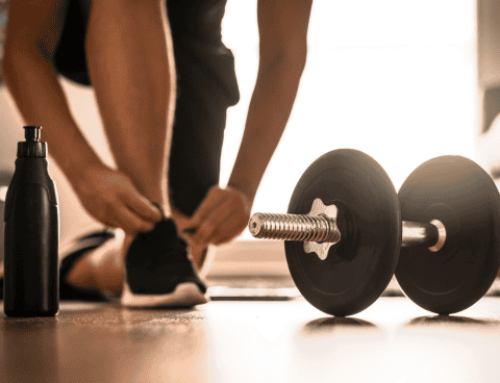The sports performance field is booming. Everywhere you turn, it seems, a new private facility is opening or a commercial gym is adding sports performance classes. More and more colleges and high schools are adding strength coaches to their staffs. So if you’re thinking about a career as a strength coach, there are plenty of opportunities out there.
But loving the weight room is not enough. Here are some things that will help you turn your passion for training into a career.
Athletic Background
Would you hire someone who is not an athlete to help you become a better athlete? Most strength coaches played a sport in college, or at the very least in high school. If you didn’t, you could boost your résumé by coaching or managing a school team or competing in a sport like weightlifting.
College Degree
Watching YouTube videos all day won’t cut it. If your goal is to be a strength coach at the professional, college or high school level, you must earn at least a bachelor’s degree and possibly a master’s. A master’s degree is becoming the norm at the college and professional levels.
Exercise science, exercise physiology, physical education, and athletic training are all good majors. If you don’t have a fitness-related degree, you will need to learn the domains within an exercise science program to be certified. You can work as a private coach without a bachelor’s degree, but not all facilities will hire you.
Internship/Volunteer Experience
I have never met a strength coach who hasn’t performed at least one internship. An internship gives you the chance to start coaching athletes, learn from more experienced coaches, and begin building a network to help you land a job or a graduate assistantship. Most internships are unpaid, but some offer modest compensation.
I recommend completing at least one internship before you finish college. You will gain the experience and references needed to help you land a graduate assistantship (if graduate school is your plan), a paid internship, or even a full time job.
You may be able to secure an internship just by emailing a local college or private strength coach to inquire. Many places also post internships online.
Certifications
A strength coach must pass some tests to achieve credibility. The certifications that employers look for are:
- National Strength and Conditioning Association: Certified Strength and Conditioning Specialist (CSCS). This is the most common certification for strength and conditioning coaches at all levels. To earn this credential, you must have a bachelor’s degree and pass an exam.
- Collegiate Strength & Conditioning Coaches Association: Strength and Conditioning Coach Certified (SCCC). To earn this credential, you must have a bachelor’s degree, complete an internship under a approved mentor, and pass an exam.
- A couple of other certifications are worth looking into; however, they are not necessary for most jobs.
- USA Weightlifting (USAW). Most strength coaches incorporate Olympic lifts and their variations. USAW is a good resource for learning how to coach these lifts more effectively and how to specialize in coaching Olympic weightlifting competitors.
- National Academy of Sports Medicine. This organization offers specialized education in personal training, corrective exercises, performance enhancement, and more. Unless you are working as a personal trainer, this certification isn’t normally required, but it’s worth looking into to further your knowledge and enhance your credentials.
Under-the-Bar Experience
Post-secondary education and reputable certifications are obviously important, but if you don’t practice what you preach, you will severely limit your coaching ability. I have learned more from my own training than I have reading any book. It has helped me look the part; try out programs before I recommend them to my athletes; and become a better coach by having a full understanding of every exercise.
I hope this has helped. If you have any questions, post your comments below.
Read more:
[cf]skyword_tracking_tag[/cf]RECOMMENDED FOR YOU
The sports performance field is booming. Everywhere you turn, it seems, a new private facility is opening or a commercial gym is adding sports performance classes. More and more colleges and high schools are adding strength coaches to their staffs. So if you’re thinking about a career as a strength coach, there are plenty of opportunities out there.
But loving the weight room is not enough. Here are some things that will help you turn your passion for training into a career.
Athletic Background
Would you hire someone who is not an athlete to help you become a better athlete? Most strength coaches played a sport in college, or at the very least in high school. If you didn’t, you could boost your résumé by coaching or managing a school team or competing in a sport like weightlifting.
College Degree
Watching YouTube videos all day won’t cut it. If your goal is to be a strength coach at the professional, college or high school level, you must earn at least a bachelor’s degree and possibly a master’s. A master’s degree is becoming the norm at the college and professional levels.
Exercise science, exercise physiology, physical education, and athletic training are all good majors. If you don’t have a fitness-related degree, you will need to learn the domains within an exercise science program to be certified. You can work as a private coach without a bachelor’s degree, but not all facilities will hire you.
Internship/Volunteer Experience
I have never met a strength coach who hasn’t performed at least one internship. An internship gives you the chance to start coaching athletes, learn from more experienced coaches, and begin building a network to help you land a job or a graduate assistantship. Most internships are unpaid, but some offer modest compensation.
I recommend completing at least one internship before you finish college. You will gain the experience and references needed to help you land a graduate assistantship (if graduate school is your plan), a paid internship, or even a full time job.
You may be able to secure an internship just by emailing a local college or private strength coach to inquire. Many places also post internships online.
Certifications
A strength coach must pass some tests to achieve credibility. The certifications that employers look for are:
- National Strength and Conditioning Association: Certified Strength and Conditioning Specialist (CSCS). This is the most common certification for strength and conditioning coaches at all levels. To earn this credential, you must have a bachelor’s degree and pass an exam.
- Collegiate Strength & Conditioning Coaches Association: Strength and Conditioning Coach Certified (SCCC). To earn this credential, you must have a bachelor’s degree, complete an internship under a approved mentor, and pass an exam.
- A couple of other certifications are worth looking into; however, they are not necessary for most jobs.
- USA Weightlifting (USAW). Most strength coaches incorporate Olympic lifts and their variations. USAW is a good resource for learning how to coach these lifts more effectively and how to specialize in coaching Olympic weightlifting competitors.
- National Academy of Sports Medicine. This organization offers specialized education in personal training, corrective exercises, performance enhancement, and more. Unless you are working as a personal trainer, this certification isn’t normally required, but it’s worth looking into to further your knowledge and enhance your credentials.
Under-the-Bar Experience
Post-secondary education and reputable certifications are obviously important, but if you don’t practice what you preach, you will severely limit your coaching ability. I have learned more from my own training than I have reading any book. It has helped me look the part; try out programs before I recommend them to my athletes; and become a better coach by having a full understanding of every exercise.
I hope this has helped. If you have any questions, post your comments below.
Read more:
[cf]skyword_tracking_tag[/cf]










